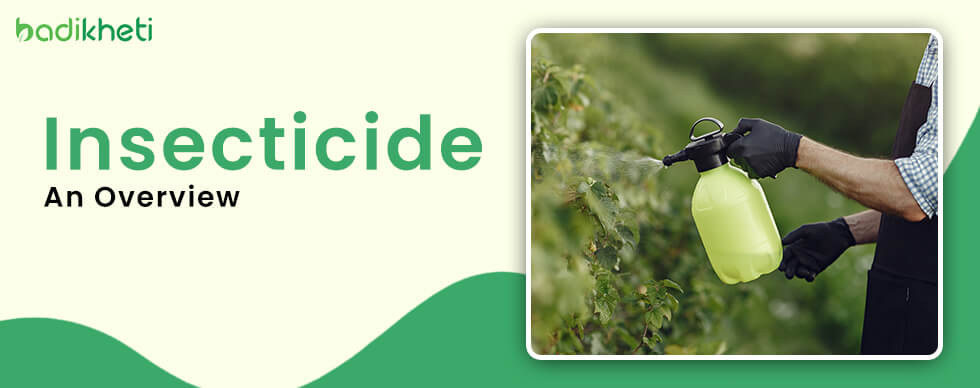An Introduction to Insecticides
According to an Indian Council of Medical Research (ICMR) scientist, pests destroy around 35% of crops in India. Is there any way we can stop this? Yes, it’s called insecticides.
Insecticides are chemicals that kill insects of one or more types and some types of pests. They are used in agriculture to get rid of pests that eat crops, but they can also be used for other things, like getting rid of insects that spread diseases.
Insects can eat plant foliage, roots, and stems, making them unusable and damaging the plants. Before insecticides were widely used, insects ate a large portion of crops, causing losses to farmers. There was little to no control over these factors, such as natural predators or parasites that attack crop-eating insects. Insecticides have helped agriculture, especially with yield.
Almost all commercial agriculture, including organic, requires insecticides. As interest in organic produce grew, organic farmers needed to use organic insecticides to protect their crops from insects.
What are the different Types of Insecticides?
There are many ways to categorize insecticides, such as by how they work, what they are made of, or how they kill insects. The following are the different types of insecticides.
- Systemic insecticides are distributed systematically throughout the plant and have a long-lasting effect. It kills insects when they eat the plant and ingest the insecticide chemical.
- Contact insecticides penetrate insects’ skin. It’s toxic to insects. Compounds can be natural or synthetic. Contact insecticides are rarely residual.
- Insecticides that contain carbon, chlorine, and hydrogen are called organochlorines. Some of these insecticides had long-lasting effects. The 1940s invention is no longer used.
- Organophosphates are phosphorus-based insecticides derived from phosphoric acid. Organophosphates kill insects by inhibiting their nervous systems. They’re effective against plant-juice-sucking insects. They have little residual activity, so they’re popular because they meet crop tolerance limits.
- Carbamates are carbamic acid-based insecticides. They can be rapidly detoxified from mammalian tissues, making them less toxic to animals and humans.
What are the Advantages of Using Insecticides?
Insecticides following are the primary benefits of applying insecticides;
- Insecticides control most crop-damaging insects.
- Insecticides improve production and income.
- Insecticides are a simple and effective way to control crop-damaging pests and Insects.
- Without insecticides, farmers would lose income and waste resources due to lost crops.
- Insecticides help to control insects and reduce the spread of plant diseases that can degrade quality.
- They help ensure consumers get insect and pest-free quality fruits and vegetables.
- Insecticides quickly control pests. Insecticides can usually reduce a high insect and pest population within hours.
- Some insecticides offer broad-spectrum protection, and others can be combined to control multiple insect species.
Why choose to buy Insecticides online?
There are a lot more kinds of insecticides from different brands and manufacturers that can be bought in online stores nowadays. All insecticides come with instructions for how to use them so that they can kill insects and protect crops without being dangerous to humans.
Top online agriculture marketplace in India such as Badikheti provides a variety of insecticides to buy at an affordable rate that farmers can use to get rid of insects and pests that can hurt their crops. So Shop Now!
